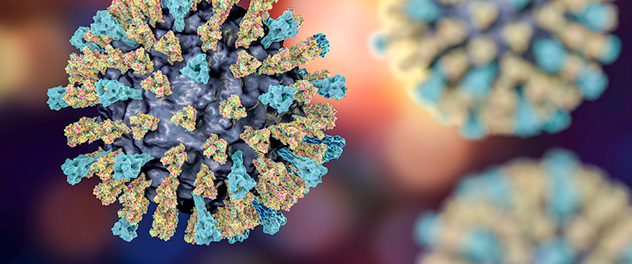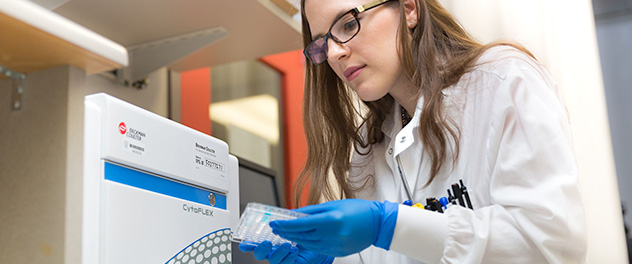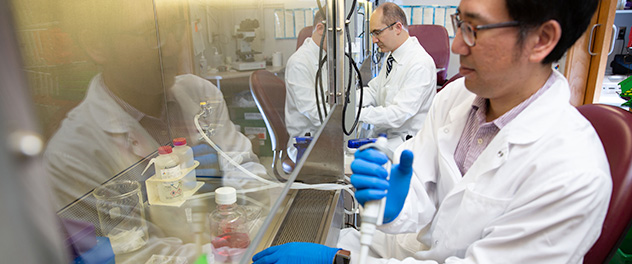-

Harnessing the power of the immune system
The T Cell Engineering Laboratory at Mayo Clinic is harnessing the power of the immune system by genetically modifying cells so that they are equipped to kill cancer.
-

Individualized immunotherapy
Research in Dr. Kenderian's lab provides a solid interdisciplinary collaboration between basic science, clinical sciences and translational approaches to bring new discoveries in cancer treatment to the patient.
-

Leading the way in CAR T-cell therapy
Research in Dr. Kenderian's T Cell Engineering Lab is the catalyst for next-generation CAR-T cell therapy, treating various types of cancer with fewer side effects and lower cost.
Overview
The T Cell Engineering Laboratory at Mayo Clinic is focused on the development, optimization and translation of chimeric antigen receptor (CAR)-T cell therapy and engineered cellular immunotherapy for people with cancer and autoimmune diseases. Saad J. Kenderian, M.B., Ch.B., leads a research team of staff with expertise in hematology, oncology, neurology, immunology, molecular medicine and immune therapy to develop new treatments for cancer in his T Cell Engineering Lab.
CAR-T cell therapy is a novel immunotherapeutic approach to treat cancer. A chimeric antigen receptor is a synthetic antibody on the surface of T cells that enables T cells to recognize cancer cells. The most successful CAR-T cell therapy to date targets CD19 (CAR-T19). This therapy was first approved by the Food and Drug Administration in 2017 for the treatment of B-cell lymphoma and leukemia.
The process of making and administering CAR-T cells is complex, labor intensive and expensive. The first step occurs when T cells are isolated from a person with cancer by a process called apheresis. The T cells are then sent to a laboratory where they are stimulated and transduced with a viral vector to generate CAR-T cells. After the cells are generated, patients receive low-dose chemotherapy followed by infusion of these cells. CAR-T cell therapy results in unique and serious complications that require close medical attention and, in most cases, intensive care. These complications include the development of cytokine release syndrome and neurotoxicity.
Affiliations
The T Cell Engineering Lab is affiliated with other Mayo Clinic research areas, including: